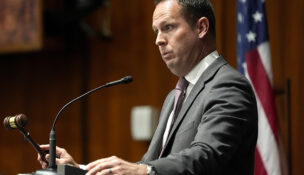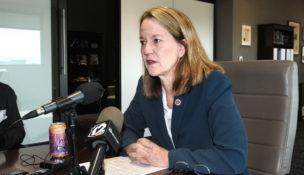Piecing it Together: AZ’s grassroots GOP falling in line behind McCain
Arizona Capitol Reports Staff//October 3, 2008//[read_meter]
Piecing it Together: AZ’s grassroots GOP falling in line behind McCain
Arizona Capitol Reports Staff//October 3, 2008//[read_meter]
For years, Rob Haney wore a campaign-style button that makes his thoughts about John McCain crystal clear. Its design was simple: It included the words "McCain 2008" with a no-smoking-style...
No tags for this post.

















